Social commentary seems to find a more natural fit with horror than with other genres. This could be due to the fact that the world’s often a pretty horrific place, or it could just be that horror films tend to have lower overhead and therefore greater freedom to challenge audience expectations than bigger films intended for a broader market. Regardless of the underlying facts, the relationship is historically evident and statistically significant. The Belko Experiment may just be the latest example of this phenomenon, but it’s a particularly cogent one that perpetuates Blumhouse’s hot streak when it comes to thoughtful, well-produced low-budget thrillers. It doesn’t revolutionize the genre in any way, and it won’t have the crossover success that Get Out recently enjoyed, but it’s a solid entry in a relatively crowded subgenre.
The premise of the film is pretty straightforward — a group of American expats working for a government contractor located in Colombia are sealed into their office building and forced by an unseen orchestrator to murder each other. It plays something like Office Space meets Battle Royale but lacks the heart and inventiveness of either of those films. There are a few fun moments and some inspired casting choices that raise the film slightly above the level of other thrillers of its ilk, but the finished product is largely inconsistent. John C. McGinley is gleefully sadistic as usual, and Michael Rooker is as close to being cast against type as he’s ever been. The entire cast suffers from shallow characterization, as trying to develop the sizable ensemble relegates most peripheral characters to one note. And even the principal leads are given little more shading than their most simple and superficial characteristics
Before his work directing the Guardians of the Galaxy films, screenwriter James Gunn had established a name for himself with ultraviolent genre work such as the Rainn Wilson vehicle Super or the 2004 Dawn of the Dead retread, and Belko’s script shares more in common with these films than with his more polished big budget superhero work. Director Greg McLean (Wolf Creek, The Darkness) is not a particularly distinctive visual stylist but manages to maintain interest through his tactful use of gore and several inspired contrapuntal music cues, lending an appropriately otherworldly atmosphere to Belko.
The social satire inherent to the premise is never fully explored in execution, leaving the film with a sense of tonal dissonance that is never adequately resolved. The difficulty with this particular flaw is that the audience (and potentially the filmmakers) are left with a distracting uncertainty as to how seriously this film is to be taken. The psychological subtext is often too overt, making bold statements where favoring subtlety and leaving conclusions to be drawn by the audience would have been more effective. The questions that Belko raises about man’s inhumanity and the of exploitative nature of the military-industrial complex are prescient and socially relevant points to be made in our current political and cultural atmosphere, but the movie could have benefited from a softer touch.
Gorehounds looking for a little counterprogramming in a week dominated by box office behemoth Beauty and the Beast will likely be more than satisfied by the bellicosity, and even those with little interest in such films will find it passably diverting. It’s far from a masterpiece, but then again, it was probably never intended to be high art. Rated R for strong bloody violence throughout, language including sexual references and some drug use. Now Playing at Carolina Cinemark, Regal Biltmore Grande



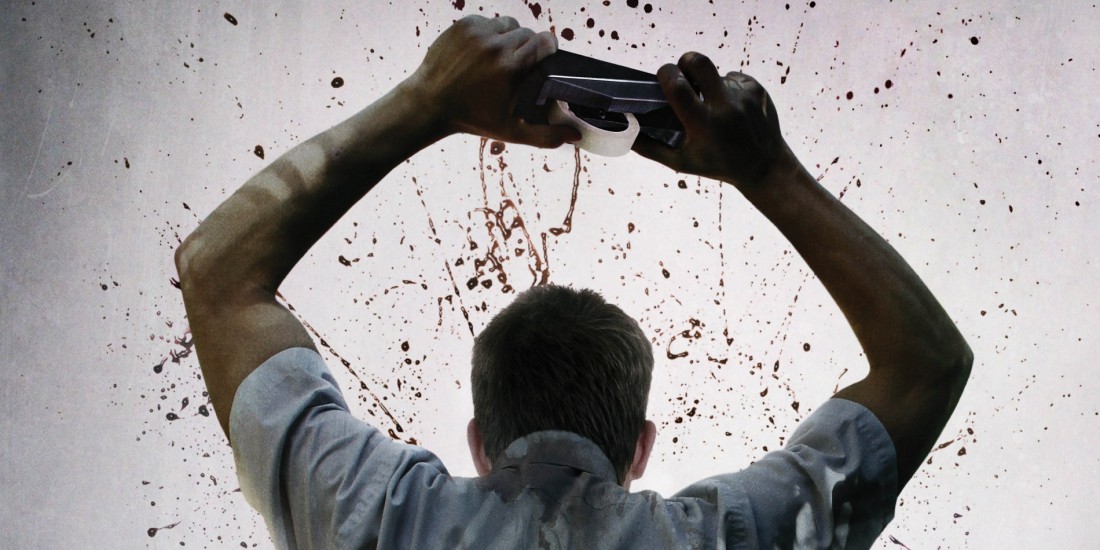
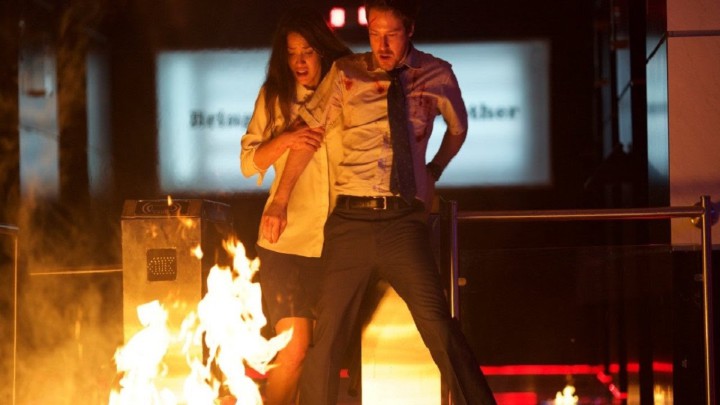
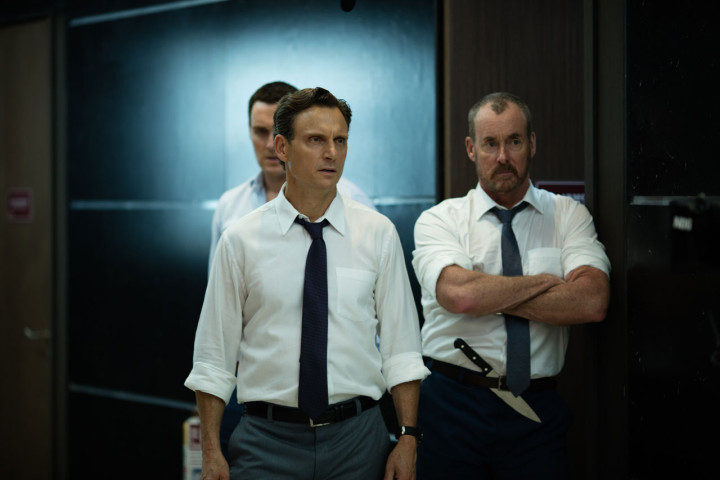
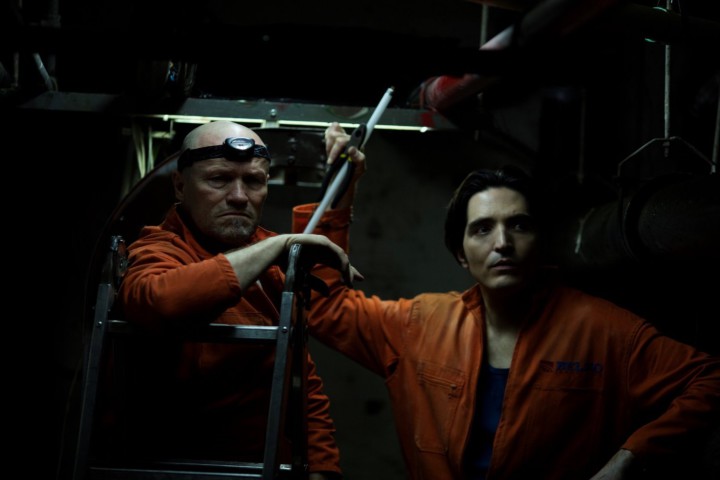
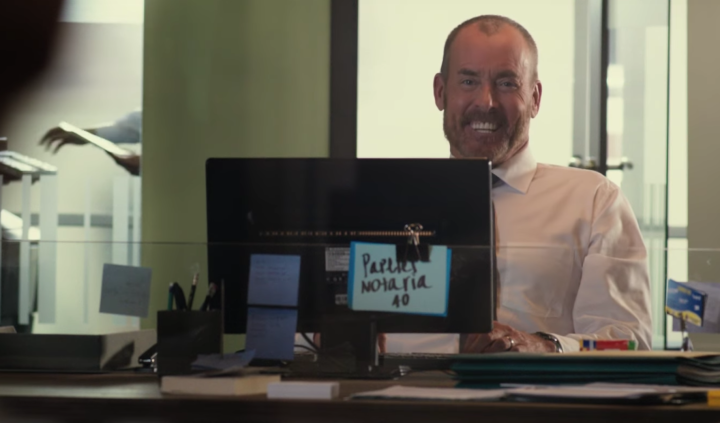
I did not regret seeing it but it was a disappointment. What could have been a great satire on office politics is just a gore fest. They had many blown opportunities. For example: why not let some women be the “evil ones” that want the guns because of the unequal pay. They also had a chance to make the employees use office supplies as weapons but they just went with boring guns. Not a bad movie but can’t recommend it to friends.
Simple politics:
The use of guns fits film-makers’ natural Left-leaning stance that more guns equal more violence, therefore gun control will control violence.
If office supplies were the weapons of choice, it would reinforce the Right’s mantra of “Guns don’t kill people, people kill people”. And very few film makers are (or will admit to being) on the Right, even in the Trump era..